#our father
Text
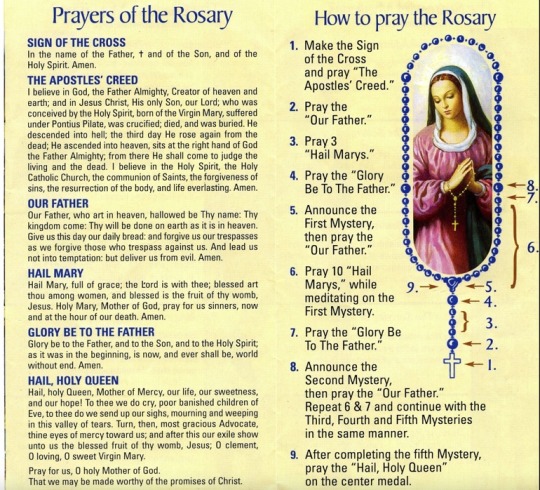
#catholic church#catholic#catholocism#catholiscism#the virgin mary#jesus#the blessed virgin mary#mother mary#mother of god#rosary#religious art#jesus christ#religion#christianity#our father#the apostles creed#glory be#bible#bible scripture#hail mary#pro life#girlblogger
156 notes
·
View notes
Photo




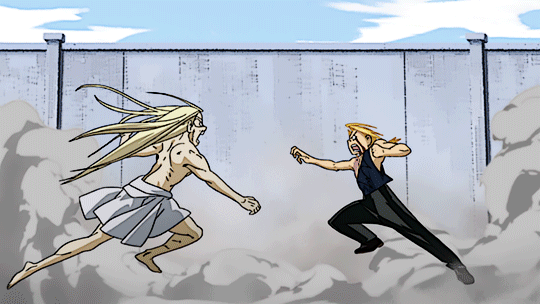
284 notes
·
View notes
Text
A heart like God’s

The Lord’s Prayer. The Our Father.
If you want to know how to pray, this is literally Jesus’ answer to that very question.
So it’s no surprise that we pray it. All. The Time.
The only problem with that? When we pray something that much, it can get smooth. Like a river stone. Worn smooth by millions of gallons of water a day, over countless years.
Until there are no rough spots. Nothing to catch on.
Until the deeper meanings, the hard parts, pass by without notice.
Which why the end of today’s Gospel is so important.
After teaching us how to pray, Jesus makes clear one of the most important principles in the Lord’s Prayer. One we often miss in our worn-smooth praying.
“If you forgive men their transgressions, your heavenly Father will forgive you.
But if you do not forgive men, neither will your Father forgive your transgressions.”
The thing is, the principle that Jesus is teaching isn’t limited just forgiveness. This is a principle for all of life. Here’s what I mean,
God wants us to be like Him, to have a heart like His. A heart that overflows in compassion for others.
It makes sense if we stop and think about it.
We can’t have hearts like God. If there’s no room in our hearts for anyone but us.
A few weeks ago, the daily Mass readings were from Genesis. They included Cain’s murder of Abel, and Cain’s question to God – “Am I my brother’s keeper?”
The rest of the Bible? Especially the Gospels? It’s God’s long form answer to Cain’s question.
I’ll just give it away right now. Cain was wrong.
In our hearts, we know this. It’s why the spectacle of someone who talks loudly about their Faith but who harms others with their actions and their words is so grating, so jarring.
It’s so off the mark that even nonbelievers know it’s wrong.
Because we’re not called to be people who take care of ourselves. And no one else.
That’s not who God made us to be.
God made us to be like Him, to have a heart like His. A heart that overflows in compassion for others.
But the only way that works is if we live out who God made us to be.
Which is why we can’t expect to receive God’s blessings, if we’re not giving our blessings.
Today’s Readings
#Lord's Prayer#Our Father#Giving#Blessings#God's Best#God#Jesus#Catholic#Christian#Church#Moments Before Mass
29 notes
·
View notes
Text
youtube
Pater Noster (John Paul II - 1982)
PATER NOSTER, qui es in caelis, sanctificetur nomen tuum. Adveniat regnum tuum. Fiat voluntas tua, sicut in caelo et in terra. Panem nostrum quotidianum da nobis hodie, et dimitte nobis debita nostra sicut et nos dimittimus debitoribus nostris. Et ne nos inducas in tentationem, sed libera nos a malo. Amen.
26 notes
·
View notes
Photo

Isaiah 64:8 (NKJV) -
But now, O LORD,
You are our Father;
We are the clay, and You our potter;
And all we are the work of Your hand.
89 notes
·
View notes
Text

#the holy rosary#pray#prayer#mysteries#our father#Hail Mary#glory be#Fatima prayer#the salve Regina#o God#memorare#god#christianity#catholicism#the creed
14 notes
·
View notes
Text
our father, who art in heaven, baja be thy blast
#taco bell#baja blast#our father#jesus christ#jc#my dawg#borderline tag#talk tag#tag#bpd tag#text tag#diagnosed bipolar disorder#borderline personality disorder#take care#substance abuse#cptsdwarrior#you know this shit funny#still funny tho#funny tweets#funny content#i love myself#i’m hilarious#hahahaha#bajaja#tag game
181 notes
·
View notes
Text
youtube
Our Father prayer in Aramaic. Aramaic is the language spoken by Jesus. We are fortunate to have the Lord's Prayer not only in the original language but also Sung so beautifully in the original language. Listen and be blessed by this most powerful prayer of Jesus.
"For those that want to sing along:
Abun d-bashmayo Nithqadash shmokh
Tithe malkuthokh
Nehwe sebyonokh
Aykano d-bashmayo
Oph bar`o hab lan
Lahmo d-sunqonan
Yowmono washbuq lan
Hawbayn wahtohayn
Aykano doph hnan
Shbaqan l-hayobayn
Lo ta`lan l-nesyuno
Elo paso lan
Men bisho metul d-dylokh
Hi malkutho whaylo wteshbuhto
L`olam `olmin
Amin"
16 notes
·
View notes
Text
our father says "-forgive us our trespasses as we forgive those who trespass against us; and lead us not into temptation, but deliver us from evil-"
but the church has prevailed as one of my earliest trespassers-
my body was not my own it was christs-
eating your flesh every Sunday of the third grade,
he forced himself on me and he would not be the last,
later i would separate myself from him-
and be named a problem,
ridiculed for my behavior as retaliation in the face of those who trespassed against me.
I was born into temptation,
because those around me invariably gave into theirs-
predestined-
and i will deliver myself to evil every Sunday rather than spending any further time down on my knees for him,
Amen.
- Godpuppet (V.G)
october 2nd 2022
#poet#writer#writing#poem#malepoet#artist#childhood#poetry#catholic#catholic guilt#god#religon#religious trauma#religious poetry#our father#prayer
16 notes
·
View notes
Text

This piece took about 5 hours to make and I’m really proud of it :3
the prayer is “Our Father” in tagalog (Ama Namin)
I am trying to learn tagalog because I’m filipino-american
#assassination classroom#karma akabane#karma assassination classroom#rawr xd#rawr#Catholic#ama namin#tagalog#filipino#pinoy#nagisa shiota#karmagisaweek2023#karmagisa#our father
15 notes
·
View notes
Text


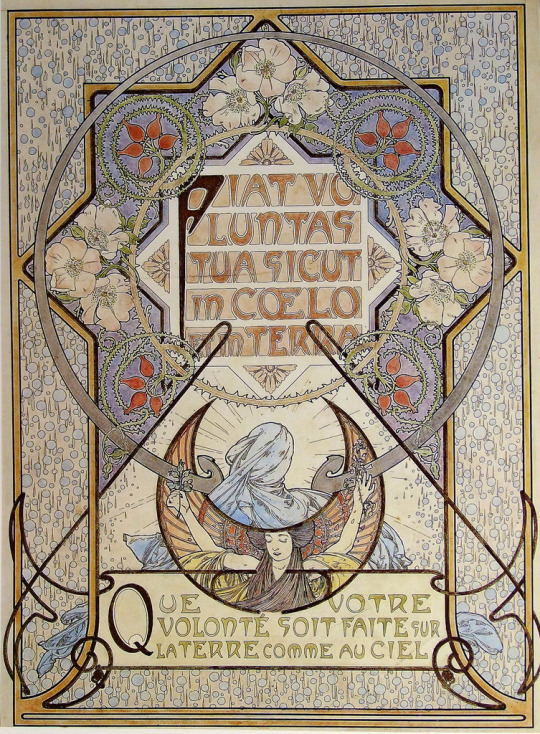

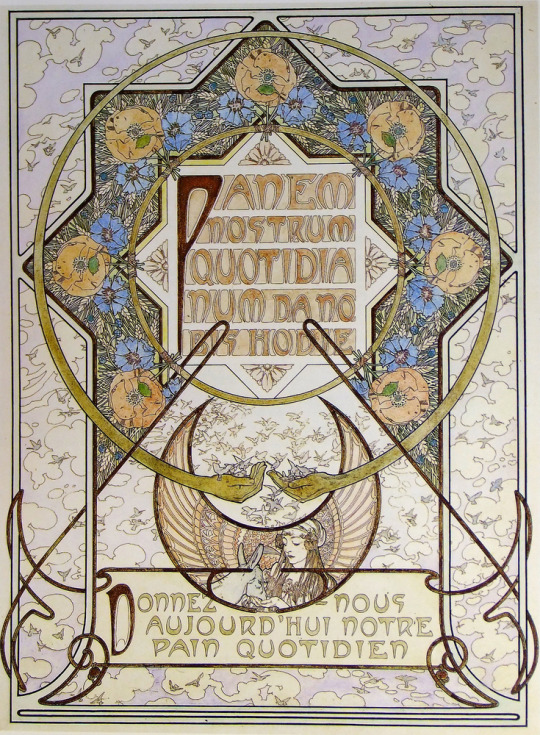
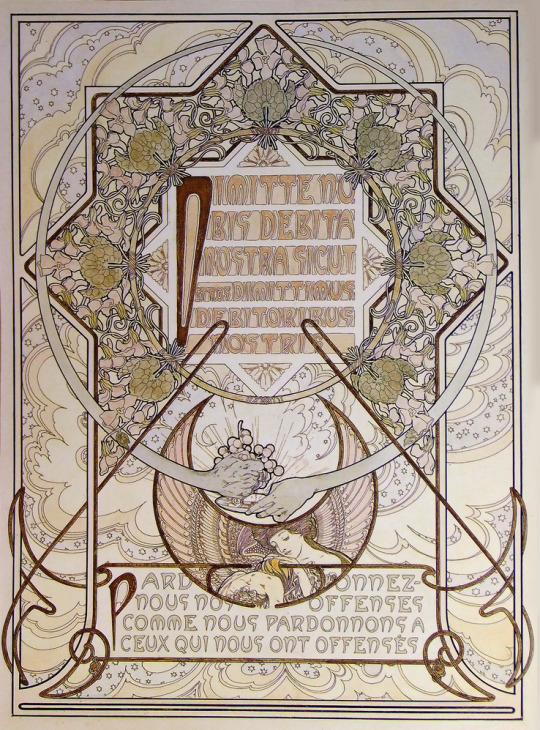

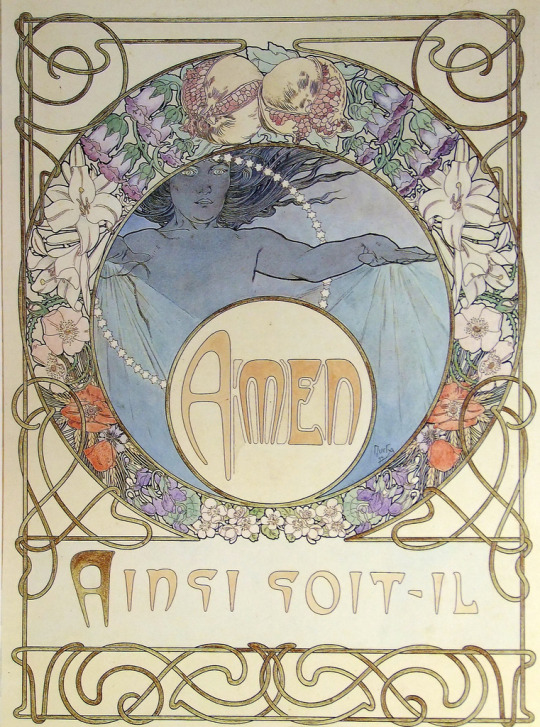
Color plates from Le Pater (1899). Published in 510 copies and forbidden to be republished.
© Alphonse Mucha Estate-Artists Rights Society (ARS), New York-ADAGP, Paris
69 notes
·
View notes
Text
Our Mother who art within us,
Each breath brings us to you.
Thy wisdom come,
Thy will be done,
as we honor your presence within us.
You give us this day all that we need.
Your bounty calls us to give and receive
all that is loving and pleasurable.
You are the courage that moves us to be true to ourselves
and we act with grace and power.
We relax into your cycles of birth,
growth, death and renewal.
Out of the womb, the darkness, the void, comes new life.
For you are the Mother of All Things.
Your body is the Sacred Earth and our bodies.
Your love nurtures us and unites us all.
Now and forever more.
Dale Allen
14 notes
·
View notes
Photo

227 notes
·
View notes
Text
Thee and thou
I seem to know the words to a lot of hymns. Especially the ones that come from Protestant churches (I’m a convert, so that’s no surprise).
Actually, I just know a lot of first verses. After that, I need to grab a hymnal.
But the words that I do know? They seem to be the “old” versions. The “thee” and “thou” versions.
When the words have been updated, I find myself scrambling for a hymnal when I hit the first “you.”
I used to think that “thee” and “thou” was formal language. A way of showing respect for God, emphasizing the difference between Creature and creator. But also putting God at arm’s length.
Which makes sense. I learned all the “thee” and “thou” versions in the context of the Protestant tradition I grew up in. Where God was kind of distant.
For the kind and loving (and distant) people of the church that I grew up in, the radical intimacy of the great saints with God made no sense at all.
To them, a prayer like Catherine of Siena’s personal version of the Glory be – which she started with “Glory be to the Father, and to Thee, and to the Holy Ghost” – would have been familiar to the point of being rude.
But for Catherine, who was speaking directly with Jesus (something that my church claimed to prefer but rarely did in practice), referring to someone sitting next to her in the third person would have been rude.
Because to Catherine, Jesus wasn’t off in the distance. Jesus was sitting next to her. And her prayers were conversations between the closest and dearest of friends.
This becomes clear in Catherine’s writings (which are in Latin), where she uses the intimate forms of second-person pronouns when talking about Jesus. Like Latin, many languages have two versions of their second-person pronouns, a formal one and an informal one.
Until about a hundred and fifty years ago, English did as well. Back in the day, if you were writing a letter to someone important or speaking to someone you barely knew, it was “you.”
For close friends and family, for your beloved, it was “thee” and “thou.”
Which – contrary to what I thought – is the real meaning of “thee” and “thou.”
It’s why (in 1846), Elizabeth Barrett Browning writes “How do I love thee? Let me count the ways.” And not “How do I love you?”
It’s not a poetic flourish or a pointless formality. It’s a precision strike.
Because she’s writing to her beloved. And she wants to make sure her beloved knows exactly how she feels. Even before she starts describing her love.
And it’s exactly how God wants us to think about Him.
Because Catherine’s intimacy with God – talking with someone who was sitting next to her, with prayers that were really conversations between the closest and dearest of friends – isn’t something rare. It isn’t something that’s reserved just for the great saints.
It’s something that God is longing to have with you.
And it’s why, in spite of changing tastes in language and style, in the Our Father, in the Hail Mary, in the prayers that so often lead us into our most intimate, most personal prayers, the Church has kept the language of “thee” and “thou.”
So the next time you catch yourself saying “thee” and “thou,” let those words remind you that your closest and dearest of Friends is waiting for you with open arms.
Today’s Gospel
#Intimacy#Prayer#God#Jesus#Catholic#Christian#Church#St. Catherine of Siena#Conversation#Thee#Thou#Elizabeth Barrett Browning#Our Father#Hail Mary#Moments Before Mass
52 notes
·
View notes
Text
youtube
FLORIANI | Our Father | Cathedral of Christ the King
9 notes
·
View notes
Photo

James 1:17 (NLT) -
Whatever is good and perfect is a gift coming down to us from God our Father, who created all the lights in the heavens. He never changes or casts a shifting shadow.
#James 1:17#good#perfect#gift#coming#down#from God#our Father#created#lights#heavens#He never#changes
83 notes
·
View notes